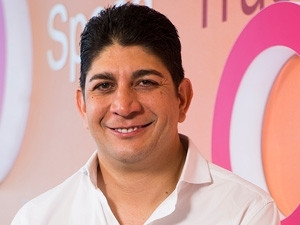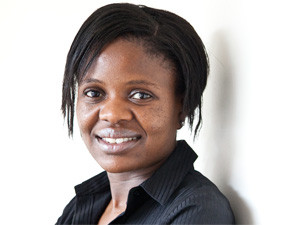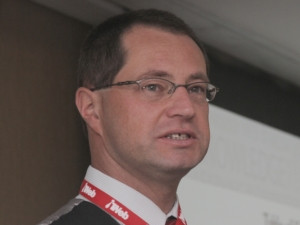
Vodacom is gearing up to go head-to-head against Telkom, becoming an alternative fixed-line option, but argues it needs Neotel's fibre base before it can tackle the incumbent in a meaningful way.
As part of its growth strategy, it will boost fibre rollouts and add more wireless capacity, in the form of long-term evolution (LTE) and 3G.
But providing fibre connectivity en masse to businesses and homes hinges on it being successful in its bid to buy what was originally meant to be SA's second national operator. That deal, which it recently announced, could take between six months and a year to wrap up.
Even if Vodacom is successful in speeding up its fibre plans, analysts point out it will be some years before Vodacom takes away any sizeable chunk of business from Telkom, especially in the fixed-line enterprise space.
Joining forces
CEO Shameel Joosub says combining the entities will create a stronger fixed-line alternative - or second national operator - to Telkom across all platforms: fixed, mobile and converged. In the short-term, the focus would be on businesses, but consumers will also fall within the network's reach, he notes.
Joosub says Neotel would do a much better job as SA's second national operator if it were better resourced.
Neotel has, so far, spent R5.5 billion on its network, at a rate of about R500 million a year. By comparison, Vodacom is pumping about 10 times that annual rate into its local infrastructure, as it upgrades its radio access network, rolls out fibre and moves to LTE.
Using the overlay potential of both fibre networks, Vodacom could push fibre to businesses and housing estates, making on-demand services a possibility, says Joosub.
Telkom has the biggest fibre footprint in SA, with 147 000km, or 80% of all fibre in the ground. Neotel has around 15 000km of fibre, and Vodacom 6 500km.

Until four years ago, when it was listed separately, Vodacom was a Telkom cash cow. The bourse debut ended 15 years of joint, and sometimes contentious, ownership of the cellular giant by UK-based Vodafone and Telkom.
Joosub says, to some extent, Vodacom would even be "happy" to partner with Telkom, as it is more focused on opportunities than worried about competing.
New market
Joosub explains Vodacom is already rolling out fibre to base stations, so it may as well run it a bit further and connect businesses and housing estates. "We may as well pick up opportunities along the route."
Spokesman Richard Boorman says there is no set timeframe for when mass fibre access will become a reality, as timing mostly depends on the Neotel deal being approved. He says the initial focus will be fibre to businesses, and to residential communities.
Boorman says the Neotel deal will make fixed-line fibre a possibility, as it will be harder and take longer to do this without adding Neotel's fibre to its own infrastructure.
Joosub expects commercial agreements between Vodacom and Neotel to be wrapped up in the next few weeks, after which the bid will be submitted to the Independent Communications Authority of SA (ICASA) and the competition authorities for approval.

If approval happens quickly, Vodacom will be able to increase its rate of investment and the speed at which it delivers service. The transaction has also raised opposition, with the Wireless Access Providers' Association arguing it will stifle competition and lead to job cuts.
Although the fibre strategy will mean increased spending initially, it provides an opportunity to grow, says Joosub. Vodacom's board has approved upping its capital spend from around 13% of revenue, to between 14% and 17% for the next three years.
While the increase will grow capacity, allowing it to drop prices and gain market share, the local portion depends on where mobile termination rates end up, the group cautions. ICASA has proposed a glide path that will see interconnect at 10c in 2016.
Tall ask
IDC analyst Spiwe Chireka says fibre is the "next biggest thing" and it makes sense for Vodacom to follow that path. She says the technology will underlie fixed data connectivity and can also be used for voice.

Vodacom has the potential to be a viable competitor to Telkom, especially in the enterprise space, as fibre is still too costly for consumers, says Chireka. Yet, she does not expect market share to shift in Vodacom's favour for at least five years.
Analyst at Africa Analysis Dobek Pater says Vodacom's fibre plans, which have been spoken about since the start of the year, would be boosted by Neotel's fibre network. He notes Neotel has deployed metro rings that can be used as a last mile, and Vodacom's last mile can be extended to be used as local loop.
However, says Pater, it would be essential for Vodacom to buy Neotel to go strongly into fixed-line, following on the heels of parent company Vodafone. Rollout would depend on the area and residential density because of costs, he adds.
Pater says although "Vodacom would be a significant fixed-line operator", it would be a long time before it could try to displace Telkom in the sector. He notes the market is growing at between 4% and 5% a year, and other companies - such as cellular providers and Internet service providers - also want a slice of the enterprise pie.
In addition, before consumers take up fibre offerings, services must be readily available, and the price needs to drop to the point where installation costs between R3 000 and R5 000, says Pater. This will take a few years, although services to gated communities will happen faster, he notes.
Share